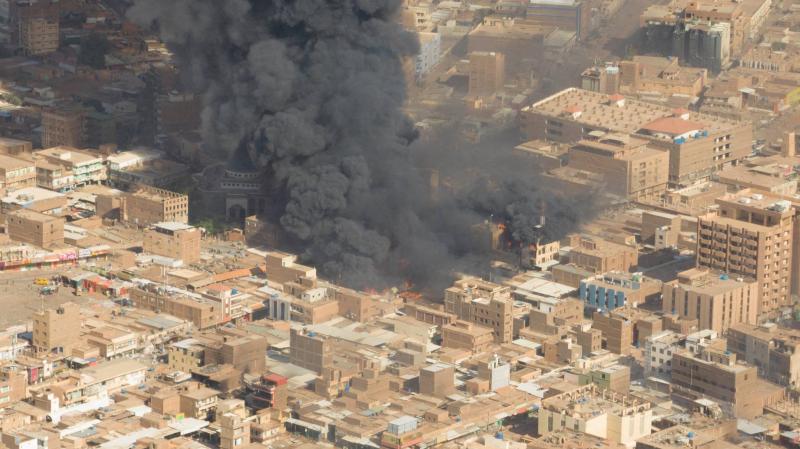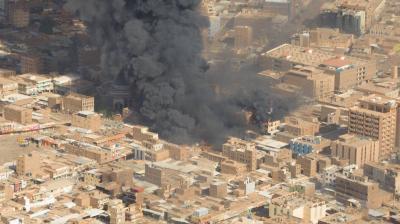On Thursday, fierce clashes broke out between the Sudanese army and Rapid Support Forces in the Sudanese capital and other areas. Despite ceasefire talks that began in Jeddah, Saudi Arabia, last week, which resulted in a preliminary agreement for a seven-point truce allowing for aid delivery and civilian protection, a final ceasefire allowing for the implementation of those conditions has not yet been reached.
Witnesses reported that intense airstrikes targeted areas south of the Sudanese capital on Thursday, coinciding with clashes near an army camp as part of the conflict that has displaced nearly a million people and left residents of Khartoum struggling to survive. The witnesses also mentioned hearing the sound of airstrikes launched by the army against the semi-military Rapid Support Forces in several residential neighborhoods in southern Khartoum, including near the Tayba camp, while a police reserve force allied with the army was fighting the Rapid Support Forces on the ground. Sounds of the strikes could also be heard from the other side of the Nile River in the East Nile area.
The violence has spread to the Darfur region in western Sudan, North Kordofan, and other areas of the country, but the power struggle remains concentrated in the capital. It is believed that army chief General Abd al-Fattah al-Burhan and Rapid Support Forces chief General Muhammad Hamdan Dagalo, also known as Hemetti, have remained in Khartoum throughout the fighting.
Additionally, the United Nations estimated on Wednesday that about 25 million people in Sudan need humanitarian assistance and that the country requires approximately $3.03 billion in emergency aid, with the number of those fleeing the war to neighboring countries expected to exceed one million this year. Humanitarian needs have worsened since the outbreak of the conflict on April 15, according to the UN, which has revised its plan to respond to the crisis.




